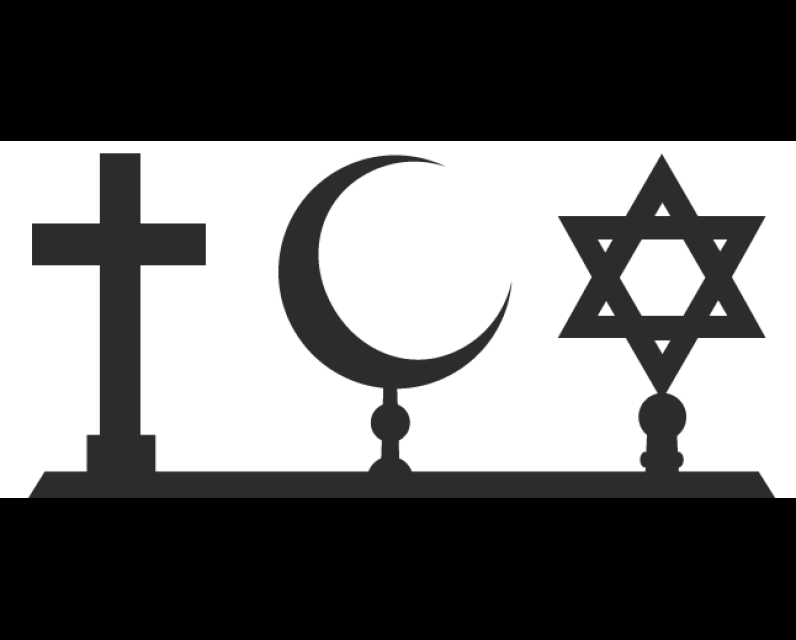Unpublished Opinions
Freedom of religion -- are there limits?

Today’s Globe and Mail includes an editorial captioned “A ‘war on terrorism’? No thanks. There are smarter ways to meet the threat” viewable at http://www.theglobeandmail.com/globe-debate/editorials/a-war-on-terroris.... The Globe editors caution against over-reacting to individual terrorist acts.
While I appreciate the argument presented in the editorial, there is a non-trivial risk that terrorism at home and abroad may be encouraged by the precepts of Islam; terrorists are quick to claim compliance with Islam as a basis for their acts. Even in peaceful Canada, Muslims pray for the defeat of other religions (http://www.torontosun.com/2015/01/13/muslims-shouldnt-pray-to-defeat-non...) and the Koran and Islamic tradition prescribe death as a means to bring about this result. In Islam, the rejection in part of any of the pillars, or individual principles of Islam, or discarding the faith as a whole, amounts to apostasy. The punishment for apostasy in the Islamic faith is death. Though it may be argued that this is not completely clear through the Koran alone, scholars have found justification for the penalty from within its pages, and there are also numerous Sahih (authentic) hadiths confirming this punishment as attested by Prophet Muhammad. In Sahih Bukhari, we see it as “Allah's Apostle said, 'Whoever changed his Islamic religion, then kill him'”, and it was also one of only three reasons given by him where killing a Muslim is permitted. See http://wikiislam.net/wiki/Islam_and_Apostasy.
Re us infidels, there are lots of pertinent passages in the Koran, among them this one: Koran (8:12) - "I will cast terror into the hearts of those who disbelieve. Therefore strike off their heads and strike off every fingertip of them" For a reasonably complete listing of this and other pertinent verses, see http://www.thereligionofpeace.com/quran/023-violence.htm.
The Canadian Government proposes tougher security and anti-terrorist laws, apparently to include increased powers for CSIS. These are currently under debate in Parliament and the press.
I would like to see a complementary approach taken. I see no reason why proponents of death and violence in the name of religion should be able to rely upon “freedom of religion” to justify their practices or propaganda. I am all in favour of freedom of religion for peaceful religions, but the above quotations reveal what is widely practised in the name of Islam, namely that Islam is by no means a religion of peace but rather a religion endorsing death and violence. In my view, the constitutional imperative of peace, order and good government should have precedence over religion-prescribed death and violence.
Given the foregoing, I would like to see the existing Canadian Constitution complemented by fresh legislation prohibiting its abuse by Islamists.
The relevant provisions of the existing Constitution are the following:
Selected Excerpts from the CONSTITUTION ACT, 1982
CANADIAN CHARTER OF RIGHTS AND FREEDOMS
Whereas Canada is founded upon principles that recognize the supremacy of God and the rule of law:
Guarantee of Rights and Freedoms
2. Everyone has the following fundamental freedoms:
(a) freedom of conscience and religion;
(b) freedom of thought, belief, opinion and expression, including freedom of the press and other media of communication;
(c) freedom of peaceful assembly; and
(d) freedom of association.
6. (1) Every citizen of Canada has the right to enter, remain in and leave Canada.
7. Everyone has the right to life, liberty and security of the person and the right not to be deprived thereof except in accordance with the principles of fundamental justice.
15. (1) Every individual is equal before and under the law and has the right to the equal protection and equal benefit of the law without discrimination and, in particular, without discrimination based on race, national or ethnic origin, colour, religion, sex, age or mental or physical disability.
26. The guarantee in this Charter of certain rights and freedoms shall not be construed as denying the existence of any other rights or freedoms that exist in Canada.
27. This Charter shall be interpreted in a manner consistent with the preservation and enhancement of the multicultural heritage of Canadians.
33. (1) Parliament or the legislature of a province may expressly declare in an Act of Parliament or of the legislature, as the case may be, that the Act or a provision thereof shall operate notwithstanding a provision included in section 2 or sections 7 to 15 of this Charter.
I would like to see enacted the Peaceable Religion Act (to be introduced either as a Government Bill or a Private Member’s Bill) reading more or less as follows, to be followed by provincial affirmation:
WHEREAS adherents of one or more non-peaceable religions have a history of committing acts of violence, death and terror in several countries; and
WHEREAS adherents in Canada of one or more non-peaceable religions have been proponents, supporters, persons practising, teachers or preachers of a non-peaceable religion or of precepts thereof, within or outside Canada; and
WHEREAS the foregoing history and present circumstances constitute a threat to the peace, order and good government of Canada, and are incompatible with Canadian traditions of peaceful non-threatening practice of religion;
Be it enacted that:
1. In this Act,
(a) “adherents” includes professed adherents, proponents, supporters, persons practising, teachers and preachers of any non-peaceable religion or of any precept thereof, within or outside Canada;
(b) “non-peaceable religion” is any set or system of precepts that proposes or endorses or supports, or a non-trivial number of whose adherents preach, propose, practise, endorse or support,
(i) violence or death as a remedy for any non-compliance with such set or system or any part or precept thereof; or
(ii) any set or system of laws or rules, at variance with the laws of Canada or any province, whose precepts include violent punishment or death for breach; or
(iii) violence or death or threats thereof to non-adherents of such non-peaceable religion.
(c) “precepts” includes beliefs, practices, and proposed practices, formal or informal.
2. Adherents of a non-peaceable religion are not entitled to any exemption from or defence to any civil action or criminal charge on the basis of any of ss. 2, 6, 7, 15, 22, 26, 27 and 33 of the Constitution Act, 1982, alone or in combination, nor of any other statute or common-law principle declaratory or supportive of freedom of religion.
3. Any person (including any formal or informal organization) who supports a non-peaceable religion or an adherent thereof by preaching, teaching, publication, promotion, finance, solicitation or other means is subject to having that person’s assets confiscated by the Government of Canada, and to an interlocutory and permanent injunction, in addition to any criminal charges that may apply.
4. In examining whether a religion is non-peaceable or whether a person is an adherent thereof, regard may be had to the role and history of that religion and its adherents in any country.
5. The Parliament of Canada and the legislatures of the provinces may enact further laws or pass regulations, or both, compliant with the letter and spirit of this Act.



Comments
Be the first to comment